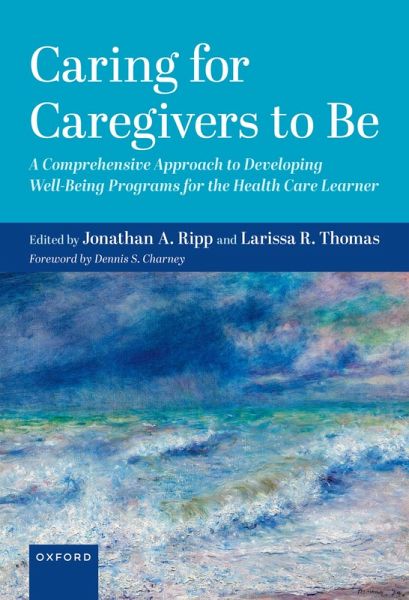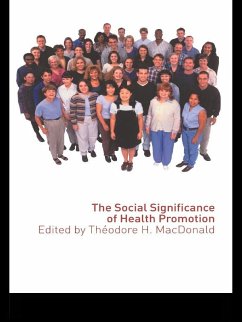
Caring for Caregivers to Be (eBook, ePUB)
A Comprehensive Approach to Developing Well-Being Programs for the Health Care Learner
Redaktion: Ripp, Jonathan; Thomas, Larissa R.
Versandkostenfrei!
Sofort per Download lieferbar
31,95 €
inkl. MwSt.
Weitere Ausgaben:

PAYBACK Punkte
16 °P sammeln!
Caring for Caregivers to Be provides evidence-based insights and solutions to reduce burnout and improve well-being among medical learners, particularly students and graduate medical trainees. It provides a scoping review of the research related to the well-being of the health care learner and offers a suite of current and emerging tools and strategies believed to reduce medical burnout and foster resilience. Chapters identify the major drivers of both burnout and flourishing and explore the consequences of sub-optimal well-being for performance and patient care. The volume ends with practical...
Caring for Caregivers to Be provides evidence-based insights and solutions to reduce burnout and improve well-being among medical learners, particularly students and graduate medical trainees. It provides a scoping review of the research related to the well-being of the health care learner and offers a suite of current and emerging tools and strategies believed to reduce medical burnout and foster resilience. Chapters identify the major drivers of both burnout and flourishing and explore the consequences of sub-optimal well-being for performance and patient care. The volume ends with practical considerations that medical education leaders can use for solutions-based well-being program development and tips for medical learners seeking to improve their own well-being within a professional environment. Caring for Caregivers to Be is the comprehensive guide to promoting the development of a resilient and professionally fulfilled physician workforce.
Dieser Download kann aus rechtlichen Gründen nur mit Rechnungsadresse in A, B, BG, CY, CZ, D, DK, EW, E, FIN, F, GR, HR, H, IRL, I, LT, L, LR, M, NL, PL, P, R, S, SLO, SK ausgeliefert werden.













